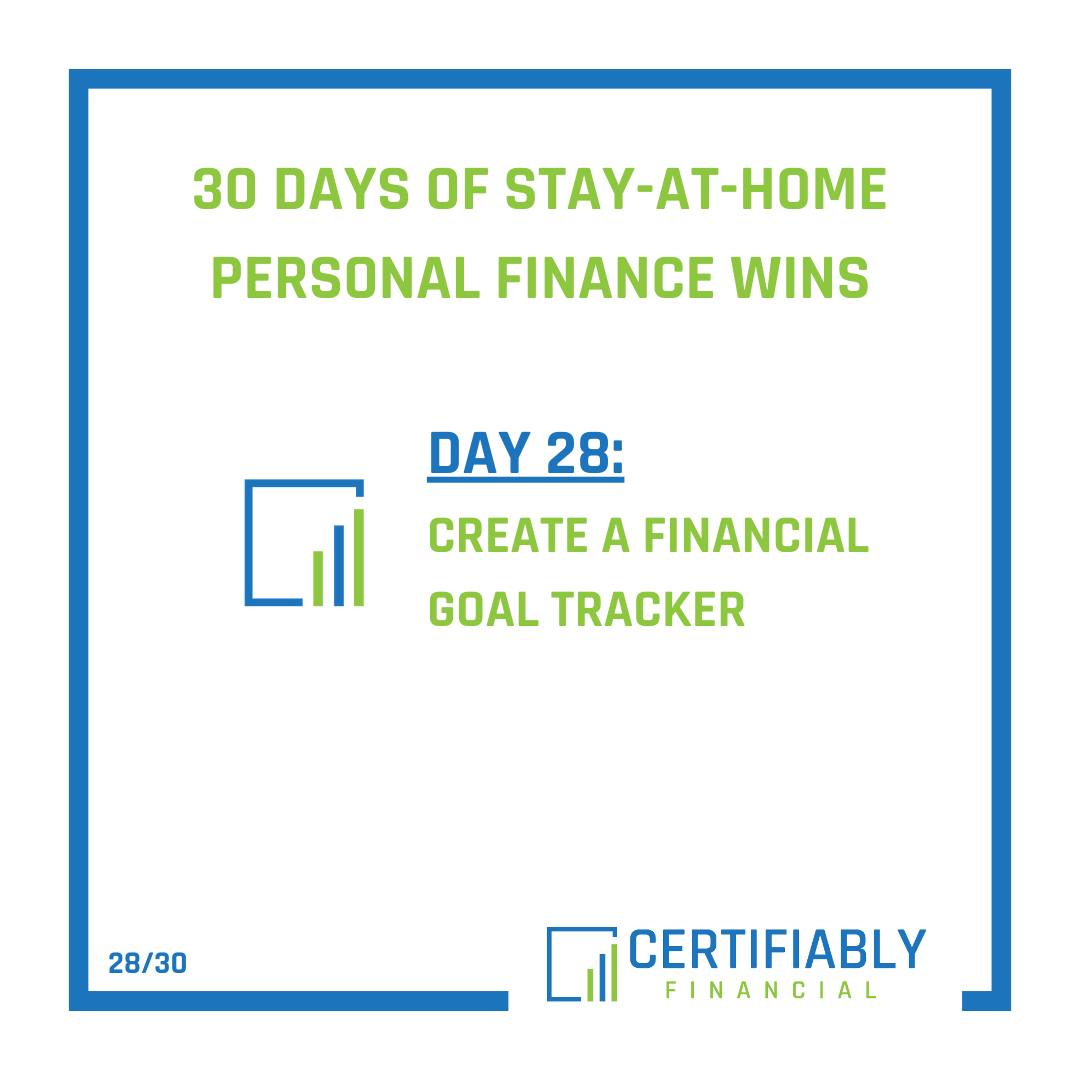What if you were able to come out of this time of social distancing and economic crisis with a stronger and healthier financial life? What if you looked at this as an opportunity to take a little bit of your extra time each day to work on your finances?
Since it takes me about 35 minutes to drive to work in the morning and 45 minutes on the way back home, I have an extra 1 hour and 20 minutes of my day that I don’t have to drive while I’m working from home that I can use to accomplish something. This doesn’t even take into consideration all of the networking and social events that would usually take up some of my time throughout the week.
Obviously, your situation is different than mine (and probably a whole lot different if you have kids at home who would otherwise be in daycare), but I’m guessing that we all have at least a little extra time right now that we can dedicate to our personal finances.
It looks like we’re going to continue to practice our social distancing skills at least through April, and now is a great time to work on creating a better financial situation, so I’m giving you 30 days of stay-at-home personal finance wins throughout April.
Unfortunately, I understand that there are many who have (and who will) lose their jobs during this time of uncertainty and objectively will not come out on the other side of this with a stronger financial situation. Hopefully, many of these personal finance wins can help to lessen the blow and make things easier on them. On the other hand, I think that many of these wins are still relevant to those who are fortunate enough to be in a position to not have to worry about their job and their finances to help them build a healthier financial life.
Day 28: Create A Financial Goal Tracker
Writing down your goals isn’t enough. While the studies show that doing so will make you much more likely to reach your goals, that also requires you taking action. One of my favorite quotes in regards to financial planning is this: “The goal of financial planning isn’t the financial planning output, it’s the financial planning outcome.” We can write down our goals and create plans and scenarios all day long, but they’re worthless if they don’t lead to meaningful actions and outcomes.
We want to actually accomplish the goals that we wrote down yesterday, rather than just writing them down for the sake of doing so and forgetting about them. To help us be more successful at reaching these goals, we need to break them down into smaller actions, behaviors, and habits that we can accomplish each day so that we can eventually be successful at accomplishing what we set out to. Once we have these smaller goals in place, we need to track our habits to make sure that we’re accomplishing them each day.
Here’s an example of a habit tracker from James Clear, the author of the book Atomic Habits, with a brief explanation of how to use it: Habit Tracker Template
Here are a few articles which can hopefully help you get started on the right path towards reaching your goals and help you be successful at accomplishing them:
- The Hardest Part Of Making Financial Progress
- How to Stick to Your Budget In 2020
- Paying Down Debt in 2020
- How to Save More Money in 2020
30 Days Of Stay-At-Home Personal Finance Wins
- Day 1: Understand The CARES Act
- Day 2: File for Unemployment or Short-Time Compensation
- Day 3: Request Forbearance
- Day 4: File Your Tax Return (Maybe)
- Day 5: Commit to Yourself
- Day 6: Practice Financial Distancing
- Day 7: Don’t Panic
- Day 8: Create An Online Shopping Strategy
- Day 9: Find & Store Your Login Information
- Day 10: Review Your Spending
- Day 11: Free Up Cash Flow
- Day 12: Automate Bill Payments
- Day 13: Plan To Increase Your Emergency Fund
- Day 14: Update Your Beneficiaries
- Day 15: Plan for Big Expenses
- Day 16: Create A Debt Pay Down Strategy
- Day 17: Transfer Your Credit Card Balance
- Day 18: Increase Your Retirement Account Contributions
- Day 19: Close Your Old Accounts
- Day 20: Pull, Review, & Freeze Your Credit Report
- Day 21: Find Things To Sell
- Day 22: Review Your Insurance Policies
- Day 23: Review & Update Your W-4
- Day 24: Create a Budget/Spending Tracking System
- Day 25: Create a Net Worth Statement
- Day 26: Identify Your Money Dials
- Day 27: Write Down Your Financial Goals

